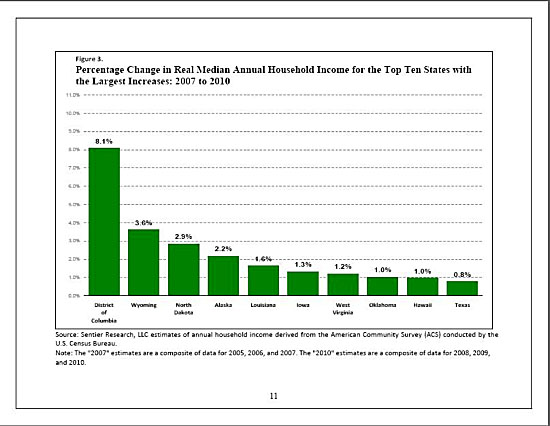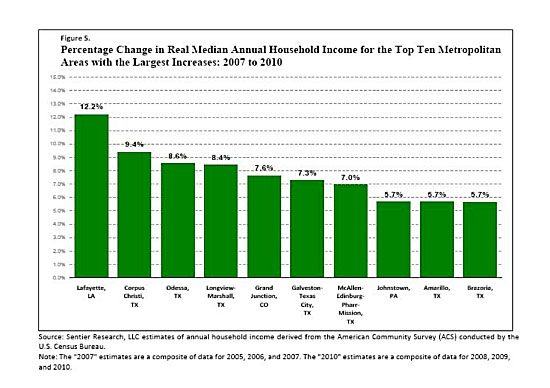Overall, the study found that seven out of the top 10 states surveyed that saw rises in household income during the current recession were states in which oil and natural gas development is a significant contributor to that state’s economy.
This graph, taken from the study, lays in pretty clear detail the top performing states (and in District of Columbia's case, non-states) in the context of overall increases in household income. Of course, it’s pretty obvious why D.C. tops the list here (recessions are a great time to be doing government work!), but take a look at the states that follow: All but Iowa and Hawaii are major oil and gas producing states:

But the cool thing about this study is that it goes even deeper than the states—it actually takes a look at individual metropolitan areas and examines how they're faring under the current recession. Take a look at the top performers below. Any of them have anything in common?

From reviving local steel mills, supporting family businesses, and providing jobs for our nation’s veterans, the safe development of America's homegrown natural resources is providing real opportunities for communities that might otherwise be in a lot rougher shape if those who oppose energy development got their way.
And not for nuthin': Those who work in the oil and gas industry benefit from wages that are literally tens of thousands of dollars a year higher than those who work in peer industries: Consider the average natural gas industry wage is $76,910, compared to the average household income of $50,398. Just this fact alone makes it clear why groups such as the Laborers International Union of North America and local chapters of the International Union of Operating Engineers are stepping up to support the safe and responsible development of our nation’s natural gas resources. The answer: It is reviving blue collar communities throughout the nation.
JD Krohn, Energy InDepth

























































